IRPA YGN Leadership Committee
What is the IRPA YGN Leadership Committee?
Established in 2017 the primary focus of the committee has been to establish the IRPA YGN, with its official launch scheduled for the IRPA European Congress at The Hague. Going forward the committee will be driving the growth and development of the network in line with our Mission Statement and Objectives.
Who are the IRPA YGN Leadership Committee?
The committee is made up of volunteers from France, Austria, the UK and Japan. Going forward we are keen to add new volunteers to the leadership committee with the aim of representing as many countries as possible. should you be interested to join, please contact ygn@irpa.net.
Chair: Takahiko Kono (Japan)

Takahiko has belonged to Environmental protection section, Radiation Protection Department, Nuclear Fuel Cycle Engineering Laboratories, Japan Atomic Energy Agency (JAEA) since 2006. His main majors in JAEA are radiation protection, environmental radioactivity and low-level liquid effluent monitoring around Tokai Reprocessing Plant. He has been interested in following 3 research themes; 1) Environmental effect assessment and environmental monitoring around nuclear power facilities, 2) Development of environmental monitoring techniques, 3) Assessment of internal exposure dose for radiation workers and the general around nuclear power facilities. In addition, he studied development of marine environmental radioactivity monitoring techniques (especially analytical method of radiostrontium in seawater) in Radiometrics laboratory, Environmental Laboratories, International Atomic Energy Agency(Monaco) as a cost-free expert in 2016.
Takahiko was a president in Young Researchers Association, Japan Health Physics Society(JHPS) for half a year in 2015. Especially, after Fukushima Daiichi Nuclear Power Plant Accident, as a member of Steering Committee of this Q&A site in JHPS, he had been engaged in the communication with the public via the internet in order to share right information on radiation protection for approximately two years.
Yeon Soo Yeom (Repubic of Korea)
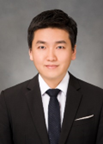
Yeon Soo Yeom is an Assistant Professor at Department of Radiological Science / Radiation Convergence Engineering of Yonsei University in South Korea. He received his PhD in nuclear engineering from Hanyang University in 2017 by completing his doctoral dissertation project on the development of the new adult male and female mesh-type reference computational phantoms (MRCPs) of the International Commission on Radiological Protection (ICRP). He worked as a visiting fellow in Radiation Epidemiology Branch (REB) at National Cancer Institute (NCI) / National Institutes of Health (NIH) in USA (2018 – 2021), involving various radiation dosimetry studies such as a novel methodology to estimate normal tissue doses for large-scale radiotherapy patients. He has served as a member of four ICRP Task Groups (90, 96, 103, 113) and an author of three ICRP Publications (143, 144, 145). He has published over 65 peer-reviewed journal papers and received numerous scientific awards such as “Charles Land Award” for Best Oral Presentation from the 2018 Conference on Radiation and Health & the Radiation Research Society and 2019 MC2 research award from Korean Association of Medical Physicists in North America (KAMPiNA).
Innocent Tsorxe (USA and Ghana)

Innocent is the President of the North Carolina Chapter of Health Physics. He is currently working as a medical/health physicist at Duke University and Duke University Medical Center Radiological division. Before working at Duke University, he worked as a Health Physicist at Texas A&M University’s Environmental Health and Safety (EHS), College Station, Texas
Innocent’s nuclear expertise and education spans applicable principles of radiation safety, regulatory compliance, and regulatory inspections and enforcement. His post-graduate knowledge includes an intensive course on nuclear non-proliferation.
He received his primary and secondary education in the Volta Region’s Kpando District, Ghana. He earned a B.S. in Radiation Technology/Health Physics (Hons.) from Alcorn State University in 2014. He received his M.S. in Nuclear Engineering from Texas A&M University’s Nuclear Security Science and Policy Institute (NSSPI) in 2016. He is a graduate student at the NC State University working towards a PhD degree in Nuclear Engineering.
Innocent is passionate about mentoring the next generation of radiation protection professionals in radiation protection for the next young generation.
V. P. Singh (India)

He received MS from Lucknow University and Ph. D. from Karnatak University. He began his career in year 2006 as Health Physicist after Post Graduate Diploma in Nuclear Science & Engineering from BARC Training School (currently Homi Bhabha National Institute). He is expert in Operational Health Physics, ALARA management and training on Radiation Protection. He went on to diverse capacities with leadership positions in nuclear power plants for radiation protection management; radiation risk assessment, health physics, radiological engineering, dosimetry, nuclear safety, radioactive waste management with special leadership in CANDU radiation protection. He is now interested in cultural and behavior issues in radiation protection.
He has designed and developed radiation protection documents, technical basis documents, quality management documents, radiation protection manuals, health physics procedures, training manuals and training materials. He has published more than 95 research papers and 2 book chapters in peer reviewed international journals; more than 35 articles in conference/symposium proceedings in the field of shielding, dosimetric materials and operational health physics. He is reviewer of more than 50 international reputed journals, member of editorial boards of various journals and member of national/international nuclear and radiation protection societies. He has been selected in Marquis Who is who in Science and Technology in the Asia 2016-2017, World’s 500 Most Influential People on Earth in Year-2016 and Academic Excellence Award-2016 in Nuclear Physics.
Hua Li (China)
Hua Li is a Senior Researcher and Deputy Director at Frontier Technology Center of China Institute for Radiation Protection (CIRP) in China. He received his PhD in Nuclear Science and Technology from Tsinghua University in 2017. He worked as a Radiation Protection Specialist at OECD Nuclear Energy Agency (OECD-NEA) in France (2019-2022) and served as scientific secretary or expert observer of several expert groups, including UNSCEAR Expert Group on Public Exposure to Ionizing Radiation, IAEA-NEA Information System on Occupational Exposure (ISOE), NEA Expert Group on the use of Real-Time Platforms (EGRT), NEA Expert Group on comparison and understanding of Dose Prognosis (EGDP), and so on. He has participated in the writing and publish 7 international publications. His outstanding contributions in the field of occupational exposure in international organizations have been praised in writing by UNSCEAR, OECD-NEA and China Atomic Energy Authority (CAEA).
He serves as Chair of the Youth Committee of China Society of Radiation Protection (CSRP), member of NEA Expert Group on comparison and understanding of Dose Prognosis (EGDP) and Expert Group on the use of Real-Time Platforms (EGRT). His current research interests mainly focus on two aspects: one is cross disciplinary research between Radiation Protection and AI / Digitalization, the other is Radiation Dosimetry in Medical Physics. He has published over 60 academic articles and about 20 authorized patents. He won the first prize in science and technology of China Society of Radiation Protection (CSRP) in 2024, and also won multiple honors, such as Young Excellent Scientist of CSRP (2019), Young Excellent Talent of Shanxi Provincial People's Government (2019), Essence Talent of China National Nuclear Corporation (CNNC, 2021), Exemplary Individual of International Academic Work of CNNC (2023), and so on.
Bashir S. Hussain (Nigeria)
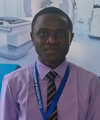
Bashir is a young Medical Radiographer who is passionate about Radiation Protection and Research. He obtained his first Degree from the Bayero University Kano, Nigeria in 2018. He has so far presented two research papers on “Radiation Dose to mammography patients” at two separate National Conferences. In 2018, he was awarded travel support grant to attend and present a paper at the ISRRT World Congress held in Trinidad and Tobago. Bashir is currently an Intern Radiographer working with the Nigerian Army Medical Corps.
He is an active member of the NSRP (Nigerian Society for Radiation Protection) and the ARN (Association of Radiographers of Nigeria). Bashir has also served as the National secretary of NARS (Nigerian Association of Radiography Students).
Viktoria Herzner (Austria)
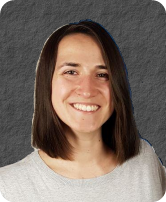
Viktoria's academic journey showcases her early interest in radioactivity and radiation protection, evidenced by her research in thermoluminescence dating, radon instrument calibration, and the remediation of Sr-90 and Cs-137.
Since October 2019, she has been employed at the Austrian Agency for Health and Food Safety, focusing on clearance, environmental monitoring, and contaminated areas in radiation protection. Commencing her doctoral studies in April 2022, Viktoria explores the radiation aspects of wood fuel combustion residues, particularly focusing on Cs-137 and Sr-90 post-Chernobyl.
Additionally, she serves as Chair of Young Scientists & Professionals in the Austrian Radiation Protection Association, dedicated to mentoring and supporting emerging professionals while fostering collaboration and professional growth.
Omar Nusrat (Canada)
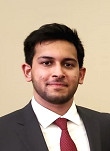
Omar is a Masters student in Nuclear Engineering, specializing in Health Physics, at Ontario Tech University in Oshawa, Canada. Previously, Omar obtained his Bachelor of Science (Honours) in Physics with a minor in Mathematics, also from Ontario Tech. His previous research experience covers a wide array of subjects, including computational nanobiophysics, machine learning, and image recognition. As a graduate researcher, his research focuses on health physics, robotics, and severe accident response management.
In 2019, Omar led a team of graduate students that built an award-winning machine learning algorithm, NeuroCrete, that could effectively assess concrete degradation in nuclear reactor buildings in real time. He has also been recognized as a finalist in his school's 3 Minute Thesis competition.
Omar is currently an active member of the Canadian Radiation Protection Association (CRPA), the Health Physics Society (HPS) and the Canadian Nuclear Society (CNS).
Joel (Germany)

After studying physics engineering and nuclear applications at Aachen University of Applied Sciences, Joel is currently employed as a medical physicist at the Bundeswehr Hospital in Germany.
His main interests are in the field of radiological emergency response and training of emergency personnel and in medical radiation protection, there especially in the field of equipment technology of computer tomographs and radiology systems.
Joel is a member of the German-Swiss Association for Radiation Protection e.V. and is the spokesman for the Young Professionals there, where he campaigns for the attractiveness and retention of competence in the radiological field. Furthermore, he is a member of the German Society for Medical Physics (DGMP).
In my free time, I like to go hiking or biking in the Koblenz vineyards and end the evening with a glass of regional wine.
Nona Movsisyan (Armenia)

I am Nona Movsisyan, Junior Researcher and Ph.D. student at the Center for Ecological-Noosphere Studies (CENS) of NAS RA, at Radioecology Department. I have graduated from Yerevan State University with Bachelor’s degree in Environmental Protection, the field of Ecological Chemistry, Faculty of Chemistry. The growing interest in the environmental sciences led me to continue my education in the field of Environmental Protection and Nature Management, at the International Scientific-Educational Center of Armenian National Academy of Sciences, where I got my Master’s degree in Environmental Protection. Since 2016 I have been working at the Radioecology Department of CENS. Currently, I am a Junior Researcher. Since 2018 I have been a Ph.D. student at the Radioecology Department of CENS with the thesis of "Peculiarities of natural and artificial radionuclides migration in the environment of Aragats massif". My main scientific activity focuses on environmental radioactivity and radioecology, in the frames of which many important issues are revealed, studied and answered. Radioecology is a very special and interesting scientific field, here you are constantly discovering new things.
Ante Matanic (Croatia)

He is a member of the Croatian Radiation Protection Association and, as of 2020, a Youth representative within the Association. The Youth section’s mission is to connect young professionals, which is accomplished through organizing meetings and lectures. He is also an active member of the Croatian Medical Physics Association. His interest in the field of radiation and physics led him to finish his master's degree in Physics and Computer Science at the University of Osijek in Croatia. Before entering the field of Medical Physics, he worked as a Physics teacher in Elementary and High school. He has been working at University Hospital Centre Sestre Milosrdnice in Zagreb since 2018, and he has been an assistant lecturer in undergraduate study of Radiological Technology at the University of Applied Health Sciences in Zagreb. As a medical physicist, his responsibilities include planning treatments and QA of all radiation related equipment in the department, protecting patients against radiation risks as a consequence of incidents and accidents, as well as radiation risks under normal circumstances.
Secretary: Edwin Kagai (Kenya)
Edwin Kagai is in his final year of undergraduate studies at Kenyatta University, Kenya, where he is pursuing a Bachelor of Science degree specializing in Environmental and Radiation Physics. His passion for protection, safety and youth involvement saw him team up with like-minded individuals within the student community and beyond to register the Radiation Protection and Nuclear safety Youth Network where he serves as the Secretary General.
One of Edwin’s goals is to have the youth embrace the culture of radiation protection and safety. To this end, he has led university students in establishing societies and advocacy groups that promote practices that enhance radiological protection. Edwin advocates for the empowerment of women and girls and has intentionally reached out to women in the radiation and nuclear fields to interact and offer insights and guidance to university students.
Edwin is an upcoming author and researcher. In 2023, he wrote a conference paper on the importance of youth involvement in the acceptance of nuclear energy in Kenya, emphasizing on the need to address public concerns on radiation protection and safety of radiation sources.
Win Thuzar (Myanmar)
WIN is a fourth-year Ph.D. candidate in Advanced Preventive Medical Sciences at Nagasaki University, Japan, and is also pursuing a Master’s in International Relations at Paññāsāstra University, Cambodia. Her research focuses on the recovery phase following nuclear accidents, with a particular interest in the human aspects of radiological protection. She is currently exploring lessons from post-Fukushima recovery efforts to support sustainable radiological protection practices.
WIN has also contributed to ICRP Task Groups as part of her internship at the ICRP Scientific Secretariat in Ottawa, Canada, enhancing her expertise in radiation protection and working collaboratively with international experts. With a background in Nuclear Engineering and a Joint Master’s in Disaster and Radiation Medical Science, she has also worked as a researcher in Myanmar, supporting nuclear policy development and international cooperation.
WIN is interested in how radiological protection practices can be adapted to support regions where systems are still evolving, and she hopes to use her experience to contribute to the broader field of nuclear safety and recovery efforts.
Amy MacIntosh (Australia)
Amy’s journey into radiation protection demonstrates her enthusiasm and commitment to protecting the environment and public from the effects of radiation. She is currently employed as a Technical Officer at the Australian Radiation Protection and Nuclear Safety Agency. She received her PhD in Natural Sciences from Macquarie University in 2024. Her research focused on understanding the ecological impacts of naturally occurring radioactive material (NORM) contaminants from decommissioned offshore oil and gas infrastructure.Her field of expertise spans marine radioecology, environmental radioactivity, modelling and assessment, and radiation protection. She has published peer-reviewed articles and contributed to over 20 national and international conferences, technical meetings and workshops.
Amy is the Co-Chair of the Australasian Radiation Protection Society (ARPS) YGN. In addition, she is a Board Member on the International Union of Radioecology Council and an Executive Member of the ARPS Executive.
She earned a B.Sc. in Zoology and Geography from Otago University in 2018. She received her B.Sc. with Honours in Zoology from University of Tasmania in 2019, followed by her Master of Research in Earth and Environmental Sciences in 2021.
In her free time, she enjoys treating herself to a facial or massage, playing with her dog, scoping out a new wine bar in the city with her friends and being a passenger princess on motorbike adventures around Sydney.
Matthew Wiggins (Australia)
Matthew Wiggins is a Health Physicist at Queensland Health, specialising in radiation protection and nuclear sciences. He holds a Bachelor of Science from the Queensland University of Technology and is certified as a Radiation Safety Officer. His expertise includes environmental monitoring, radon exhalation measurements, radiation safety management, and the long-term storage of radioactive materials. Matthew has presented at national conferences and published in peer-reviewed journals.
An active leader in the field, he serves on the Executive Committees of both the Queensland and National branches of the Australasian Radiation Protection Society (ARPS), and is currently Treasurer, Webmaster, and Chair of the ARPS Young Generation Group. He is also involved in several other professional organisations advancing radiation protection.
Matthew has hands-on expertise in gamma spectrometry and radiation instrument calibration, focusing on regulatory compliance and emergency response. He is passionate about science communication and promoting radiation safety within both professional circles and the wider public.
Tatsuki Kimura (Japan)
Tatsuki received a Ph.D. in Engineering from Kyoto University in 2021. He has been working as a researcher at the Sustainable System Research Laboratory of the Central Research Institute of Electric Power Industry (CRIEPI) since 2021. The main fields of his research are the evaluation of health effects of radiation exposure and radiation protection system. He is now interested in environmental risk and risk communication in the field of radiation protection.
Riya Dey (India)
Riya obtained her Master’s degree in Physics with a specialization in Astrophysics and is presently employed as a Scientific Officer at the Bhabha Atomic Research Centre (BARC), India. She earned her M.Tech degree in Radiation Safety Engineering with a specialization in Nuclear Engineering in 2019. As an employee of the Health Physics Division at BARC, her interests lie in shielding calculations, detector simulations, groundwater transport modelling, and aerosol transport and deposition studies.
She also participates in public outreach programs organized by the department to spread awareness about radiation and its applications.
Riya received the Dr. Sekhar Basu Memorial Award in 2021, the International Radiation Protection Association – Young Scientists Award (IRPA-YS Award) in 2023 during the AOCRP-6 Congress held in Mumbai, India, and the IRPA 16 Silver Award in 2024 at the international conference held in Orlando, Florida, USA.
Additionally, she serves as the Chair of the Young Professionals Group (YPG) in the Indian Association for Radiation Protection (IARP), where she is dedicated to support emerging professionals and enhance collaboration.
Gustavo Santiago Luís (Portugal)
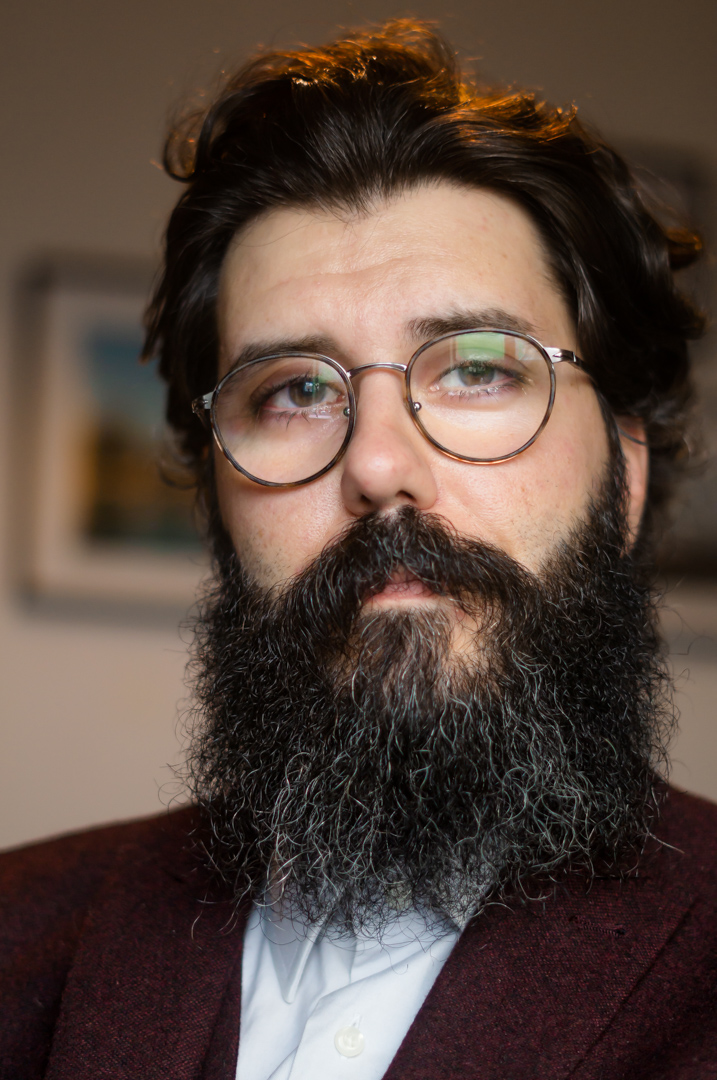
Gustavo Santiago Luís is an active member of the Portuguese Radiation Protection Society. He has recently submitted his PhD thesis in Geology at the University of Coimbra, where he also works as a Scientific Laboratory Technician at the Laboratory of Natural Radioactivity (Portugal). His research focuses on environmental radioactivity—particularly radon-222—as a tracer of environmental processes, helping to improve the understanding of interactions between groundwater and surface water.
Throughout his academic journey, Gustavo has contributed to various studies in the field of radiological protection. He has extensive experience with Liquid Scintillation Counting, Alpha Spectrometry, and Gamma Spectrometry for the measurement of natural isotopes. From conducting fieldwork and laboratory analyses to developing innovative water-sampling methods for radon measurement, his work combines scientific rigor with creativity and practical application.
He is deeply passionate about collaboration and knowledge sharing, believing that science grows stronger when ideas are exchanged openly. By joining the IRPA Young Generation Network, Gustavo hopes to connect with fellow young professionals, contribute to advancing radiation protection, and support the growth of an engaged and inclusive global community.
Outside of his professional life, Gustavo enjoys photography, cycling, and experimenting with homemade creations such as craft beer and hot sauces—always eager to explore the world both scientifically and creatively.
Jakub Varva (Czech Republic)
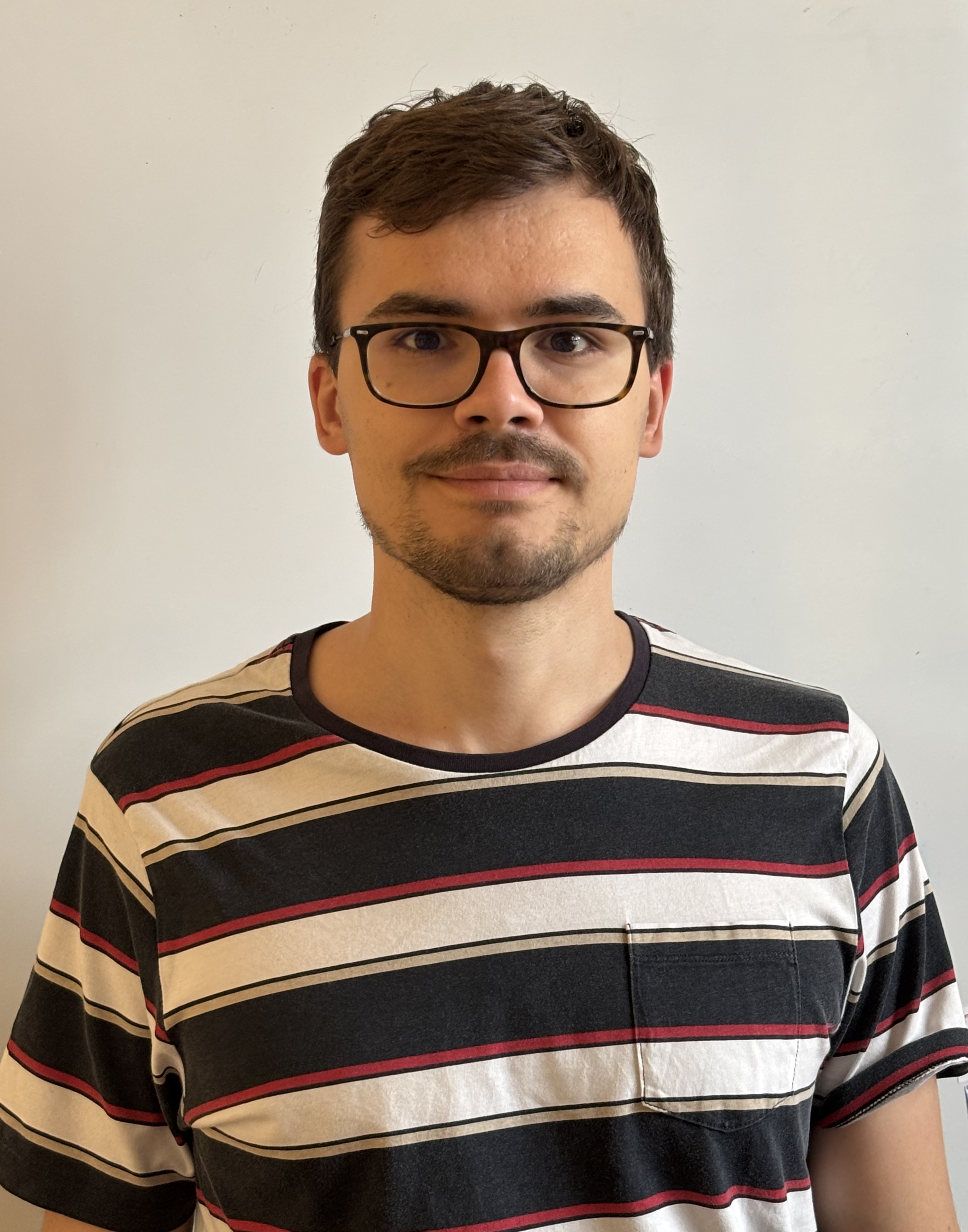
Jakub is a researcher and the head of the Biological Dosimetry Department at the National Radiation Protection Institute of the Czech Republic (NRPI). He received his PhD in Biochemistry from the Charles University in Prague in 2023 for a dissertation focusing on the heme sensor proteins and their potential role in the biological response of cells to ionising radiation.
Jakub currently works on the implementation of biological dosimetry methods at the NRPI and their application to various ionizing radiation types including the mixed gamma-neutron radiation fields. He has been a research team member or the principal investigator on four scientific projects. He has also published six research papers, three book chapters, and has actively participated in over ten international scientific conferences.
Jakub is an associate member of the Running the European Network of Biological and Retrospective Physical Dosimetry (RENEB), the European Radiation Dosimetry Group (EURADOS), and he currently serves as a vice-chair of the Czech Society for Radiation Protection (CSOZ).
Joshua Kalognia (Ghana)
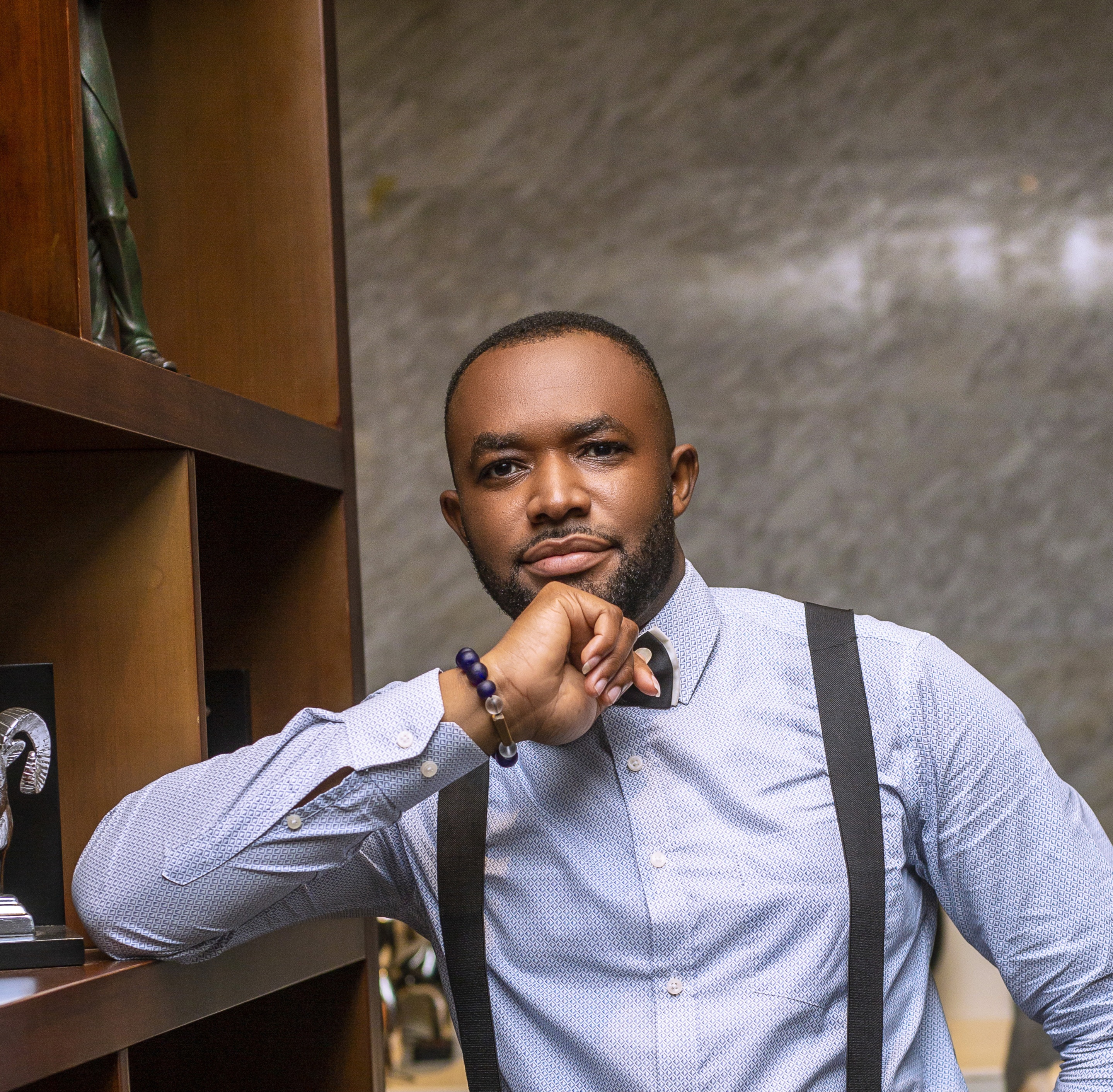
Mr. Joshua Kalognia is the Assistant Organiser of the Ghana Association for Radiation Protection (GARP) and an Assistant Research Scientist at the Nuclear Regulatory Authority (NRA), Ghana. He holds an MPhil in Radiation Protection from the University of Ghana (UG) – Graduate School of Nuclear and Allied Sciences (SNAS) (2016) and a BSc in Physics from Kwame Nkrumah University of Science and Technology (KNUST) (2013). From 2019 to 2021, he served as a Principal Technologist at the Council for Scientific and Industrial Research – Institute for Scientific and Technological Information (CSIR-INSTI).
In his role at the NRA, his purpose is to ensure the safe and secure operation of radiological, industrial, and medical facilities that use or possess radioactive sources within the country. His responsibilities include contributing to the development of regulations and guidance documents for radiation and nuclear facilities in Ghana, reviewing documents and reports submitted by applicants for authorization, and providing expert opinions on the issuing, amendment, and revocation of licenses. He also conducts inspections at authorized facilities to verify compliance and support enforcement, while participating in the development and implementation of standard operating procedures for management systems.
His professional interests include radiation protection (ionizing and non-ionizing), nuclear safety, security and safeguards, simulation and modeling, environmental monitoring, and STEM educational outreach. Passionate about leveraging science to drive progress, he is dedicated to advancing scientific development for the benefit of society and the global community.
Jorge Sanz (Spain)
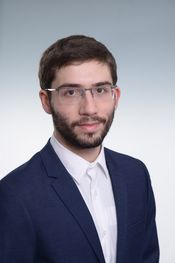
Jorge Sanz is a Radiation Safety consultant in the TÜV NORD. Over the past three years, he has assisted a wide range of medical facilities in areas such as X-ray diagnostics, radiotherapy, and nuclear medicine. Today, his focus has shifted to industrial settings, where he manages the safe handling and licensing of equipment that employs radioactive materials for monitoring and quality control.
Since 2022, Jorge has been an active member of both the Spanish Nuclear Society (SNE) and the Spanish Radiation Protection Society (SEPR). In addition to his technical work, he is committed to science outreach, delivering public talks on nuclear medicine and explaining how safety is maintained in the field.
Belinda Buermle Asamanyuah (Ghana)
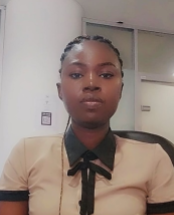
Belinda Buermle Asamanyuah is a regulatory officer with the Nuclear Regulatory Authority (NRA), Ghana, where she specializes in the inspection, review, and assessment of designs of both medical and industrial facilities that utilize radiation and nuclear technologies. She is a Medical Physicist by profession, holding a Master of Philosophy (MPhil) in Medical Physics.
Currently, she is pursuing a Doctor of Philosophy (PhD) in Health Physics and Radiation Protection at the University of Ghana, Legon, where her research focuses on advancing safety standards and optimizing radiation protection practices through the “Assessment of Effective Radiation Dose to Organs at Risk (OAR) in PET/CT Imaging of Oncology Patients”.
With her dual expertise in regulatory oversight and medical physics, Belinda plays a critical role in ensuring compliance with international safety standards while promoting the safe application of radiation in medicine and the nuclear industry at large. Her work contributes significantly to strengthening Ghana’s regulatory framework and protecting public health and the environment.
Agustín Cerezo (Spain)
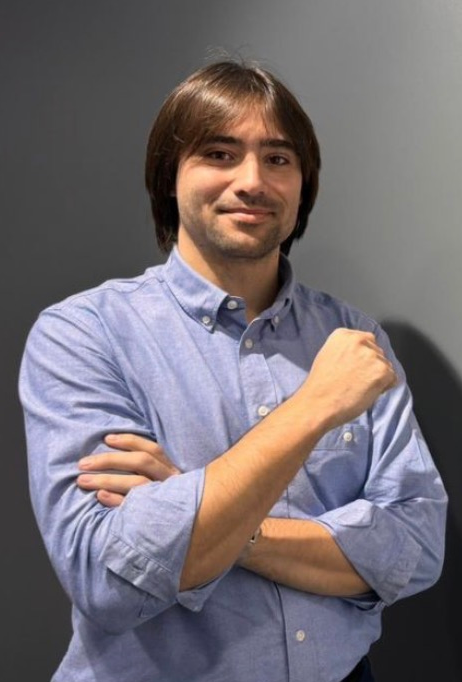
Agustín Cerezo, is a professional in the field of radiation protection and nuclear waste management.
He currently works as a Nuclear Services Consultant at Amphos 21, where he uses advanced computational modeling (with AMBER and AFRY) to assess the distribution of radioisotopes in deep geological repositories and the radiological impact on the biosphere.
As a Radiation Protection Researcher (2019-2024), he developed gamma spectrum analysis algorithms for the Catalan Environmental Radiological Monitoring Network (XVRAC) and a remote calibration method that optimized calibration time by 80%. He also collaborated on an IAEA-funded project to implement monitoring networks in the Americas.
Previously, he worked as a Research Technician at LARUEX, evaluating environmental radiation in Extremadura (RAREx) and creating flood models using HEC-RAS.
In the institutional sphere, he has held the position of President of SEPR Young Professionals (Spanish Society for Radiological Protection) since 2024 and, in 2024, he was the Secretary General of the National R&D Platform in Radiological Protection (PEPRI). He holds a PhD in Biomedicine (International Distinction) from the Rovira i Virgili University and an MSc in Biomedical Physics.
Dorottya Jakab (Hungary and Norway)
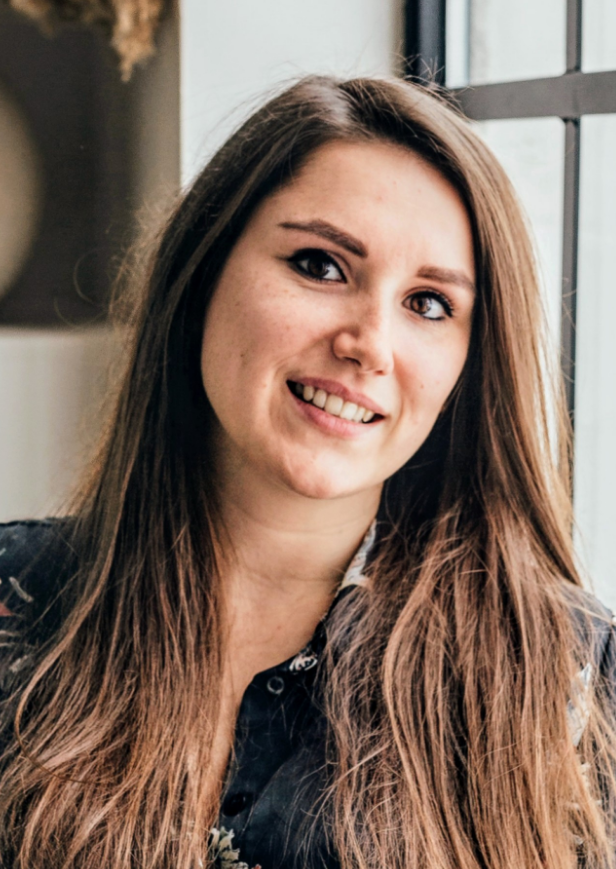
Dorottya Jakab has been a researcher in the Radiation Protection Department at the HUN-REN Centre for Energy Research (HUN-REK EK) in Hungary, since 2016. Her work has covered fundamental research as well as the management and implementation of multiple R&D projects related to radiation protection and nuclear safety. She contributed to both national projects – in particular for the Hungarian Atomic Energy Authority (HAEA), Paks Nuclear Power Plant (Paks NPP), and Paks II – and international collaborations – most significantly with the International Atomic Energy Agency (IAEA) and the European Commission. In 2025, following a five-month research stay, she joined the Norwegian Radiation and Nuclear Safety Authority (DSA), where she is involved in international research projects, most notably under the European Union’s EURATOM programme.
Dorottya earned her PhD at the beginning of 2024 from the Doctoral School of Physical Sciences at the Budapest University of Technology and Economics (BME), with a research focus on environmental radiation monitoring. She holds a BSc (2015) and an MSc (2017) in Environmental Engineering from BME’s Faculty of Chemical Technology and Biotechnology. She has experience in environmental radiation monitoring and dosimetry, personal photon and neutron dosimetry, atmospheric transport modeling and dose calculations, environmental impact and risk assessments, and has gained expertise in uncertainty analysis for both measurements and modelling. She is the author and co-author of several international and national publications in these fields.
Dorottya served as a board member of more student organizations during her university years. More recently, she has been an active member of radiation protection community and contributed to the organization of several international scientific conferences and professional training events. She was a member of the Local Organizing Committee of the 6th European IRPA Congress held in Budapest in 2022, where she coordinated the Young Scientists and Professionals Competition. She has been a member of the Hungarian IRPA Association, the Health Physics Section of the Roland Eötvös Physical Society (ELFT SV), for multiple years, and won the Association’s Radiation Protection Excellence Award in 2024.